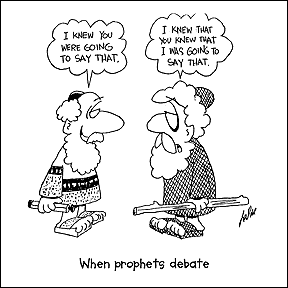
Isaiah Devotional
This devotional is based in the later part of the book of Isaiah. Much of this section of the work is conserned with the people of Israel who are living in Babylon after being taken into captivity. God addressess them and promises them freedom. This is designed to be read in conjunction with Scripture passages.
Chapter 44
Introduction
God renews the call for Israel to follow. Reaffirming the call to be God’s servants and chosen people. The spirit of God is poured out onto the nation as a whole, usually this is reserved for important leaders. The promise of the covenant is again being renewed. This invitation is extended to other nations.[1]
Reading Reflections
2 Thus says the Lord who made you, who formed you in the womb and will help you: Do not fear, O Jacob my servant, Jeshurun whom I have chosen.
The name Jeshurun appears twice in the bible in connection with Jacob. It is usually interpreted to mean “upright”
6 Thus says the Lord, the King of Israel, and his Redeemer, the Lord of hosts: I am the first and I am the last; besides me there is no god.
The promises that God makes to the people are extended. It goes beyond just the people of Israel to those of other nations. This extension is first picked up in verse 5.
7 Who is like me? Let them proclaim it, let them declare and confront me. Who has announced from of old the things to come? Let them tell us what is yet to be. 8 Do not fear, or be afraid; have I not told you from of old and declared it? You are my witnesses! Is there any god besides me? There is no other rock; I know not one.
Again, in the courtroom style, God issues a challenge. This time it is not toward the other nations, or toward the people of Israel. It is directed at the inanimate idols. The questions are thereby rhetorical and function as a way to draw attention to the one true God.
General Comments
The desert that is talked being transformed is Israel (the people) itself.
Unusual is in the Old Testament the Spirit of God is normally poured out on leaders specifically, here however it is being given to the whole people.
Verses 9-20
Notice that this way of speaking makes a sudden shift. We go from inviting other nations to suddenly very clearly dismissing everyone as really dumb. Biblical Scholars debate if this section was a possible later addition from a disciple of Isaiah. In other parts of the text,
Isaiah tends to use a more sarcastic tone, rather than ridicule. The message of this section is that humanity is created in the likeness of God and now deluded they make God in their image. As well the section seems to be just placed in the middle of an ongoing poetic style. Which picks up again at verse 22.
22“I have blotted out your rebellion like a cloud, your sins like a mist; Return to me for I am your avenger”
God is still the person speaking here. The comparison of sin with clouds and mist makes sense in a geographical context. In Palestine; during dry months of the year there is heavy mist almost every morning, which disappears very rapidly after the sun rises. It is the forgiving power of God which removes our heavy burdens.
24 Thus says God your avenger, who formed you from the womb; “I God do all things; I alone stretched out the heaven; I laid out the earth; “who was with me?” 25 He frustrates the signs of the soothsayers, and makes fools of diviners; He upsets sages, and makes nonsense of their wisdom.
Here God uses the language of avenger, demonstrating again the continued action of God in the work of returning Israel. The Creative power of God is again placed into the light to show that God has to power to do all things. Other religions relied on persons with “special powers” to reveal the future and here the prophet states that these do not know the ways of God and are frustrated when the try and guess.
28 He says of Cyrus, My shepherd; “He will accomplish all that I wish, Saying to Jerusalem, ‘she shall be built,” and to the temple, ‘you will be founded.’”
This is the first time Cyrus is named in the prophecy. He is called “my shepherd’; shepherd is a common title of kings in the Old Testament. It is also a title of God. Cyrus is given the title of Israelite king. And the word temple occurs nowhere else in Isaiah. The restoration of the temple is not included in this picture of restored Israel and Zion in spite of the prominence of the Zion Poems in this work.
Questions:
What are some things in your life that might function as idols and take your attention away from God?
Was there a time in your life where you served as a witness of God’s message to another person when you weren’t expecting to?
Prayer:
God you are our shepherd, and
our avenger. Guide our footfalls, blot out the sins of our rebellious ways with
your righteous love. Lead us into ways of your word and truth. Avenge our
hearts oh lord and turn them toward you. Amen